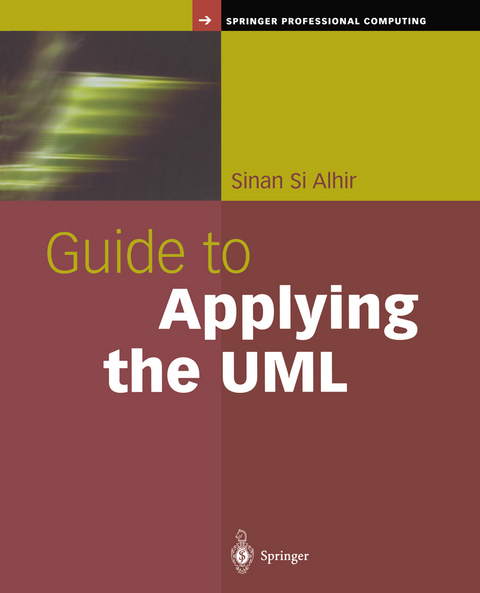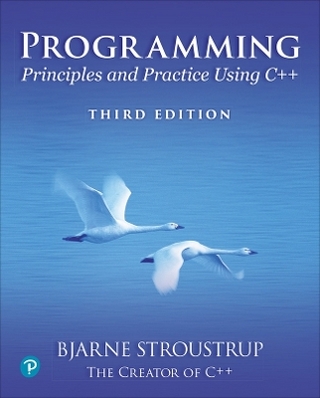
Guide to Applying the UML
Seiten
2002
Springer-Verlag New York Inc.
978-0-387-95209-3 (ISBN)
Springer-Verlag New York Inc.
978-0-387-95209-3 (ISBN)
The Unified Modeling Language (UML) is an evolutionary general-purpose, tool-supported, and industry-standardized (OMG) modeling language for specifying, visualizing, constructing, and documenting the artifacts of a system-intensive process. This title demonstrates how all of the elements of the UML fit together holistically and cohesively.
Guide to Successfully Applying the UML offers a tool-independent and process-independent roadmap for successfully applying the Unified Modeling Language (UML). The UML is a modeling language for specifying, visualizing, constructing, and documenting the artifacts of a system-intensive process. It was originally conceived by Rational Software Corporation and three of the most prominent methodologists in the information systems and technology industry: Grady Booch, James Rumbaugh, and Ivar Jacobson. The language has gained significant industry support from various organizations via the UML Partners Consortium and has been submitted to and approved by the Object Management Group as a standard.
This book works in concordance with references to offer a suite of practical real-world examples to help novice and expert users of the UML to understand the whole language (holistically and cohesively), including rules of usage and principles of composition, style guidelines, and a roadmap for successfully applying the UML. The examples are presented in a "fairly intuitive/evolutionary" manner that demonstrate the key concepts of the UML and help readers explore the wide range of uses of the UML.
Guide to Successfully Applying the UML offers a tool-independent and process-independent roadmap for successfully applying the Unified Modeling Language (UML). The UML is a modeling language for specifying, visualizing, constructing, and documenting the artifacts of a system-intensive process. It was originally conceived by Rational Software Corporation and three of the most prominent methodologists in the information systems and technology industry: Grady Booch, James Rumbaugh, and Ivar Jacobson. The language has gained significant industry support from various organizations via the UML Partners Consortium and has been submitted to and approved by the Object Management Group as a standard.
This book works in concordance with references to offer a suite of practical real-world examples to help novice and expert users of the UML to understand the whole language (holistically and cohesively), including rules of usage and principles of composition, style guidelines, and a roadmap for successfully applying the UML. The examples are presented in a "fairly intuitive/evolutionary" manner that demonstrate the key concepts of the UML and help readers explore the wide range of uses of the UML.
to the Unified Modeling Language (UML).- Modeling.- Object Orientation.- The Roadmap.- Use-Case (User) Modeling.- Structural (Static) Modeling.- Behavioral (Dynamic) Modeling.- Component (Implementation) Modeling.- Deployment (Environment) Modeling.- Extension Mechanisms.- The Object Constraint Language (OCL).
| Reihe/Serie | Springer Professional Computing |
|---|---|
| Zusatzinfo | XXII, 410 p. |
| Verlagsort | New York, NY |
| Sprache | englisch |
| Maße | 178 x 254 mm |
| Themenwelt | Mathematik / Informatik ► Informatik ► Programmiersprachen / -werkzeuge |
| Informatik ► Software Entwicklung ► Objektorientierung | |
| ISBN-10 | 0-387-95209-8 / 0387952098 |
| ISBN-13 | 978-0-387-95209-3 / 9780387952093 |
| Zustand | Neuware |
| Haben Sie eine Frage zum Produkt? |
Mehr entdecken
aus dem Bereich
aus dem Bereich
objektorientierte Entwicklung modularer Maschinen für die digitale …
Buch | Hardcover (2024)
Hanser (Verlag)
CHF 62,95
Entwicklung von GUIs für verschiedene Betriebssysteme
Buch (2023)
Hanser, Carl (Verlag)
CHF 55,95
Principles and Practice Using C++
Buch | Softcover (2024)
Addison Wesley (Verlag)
CHF 119,95


